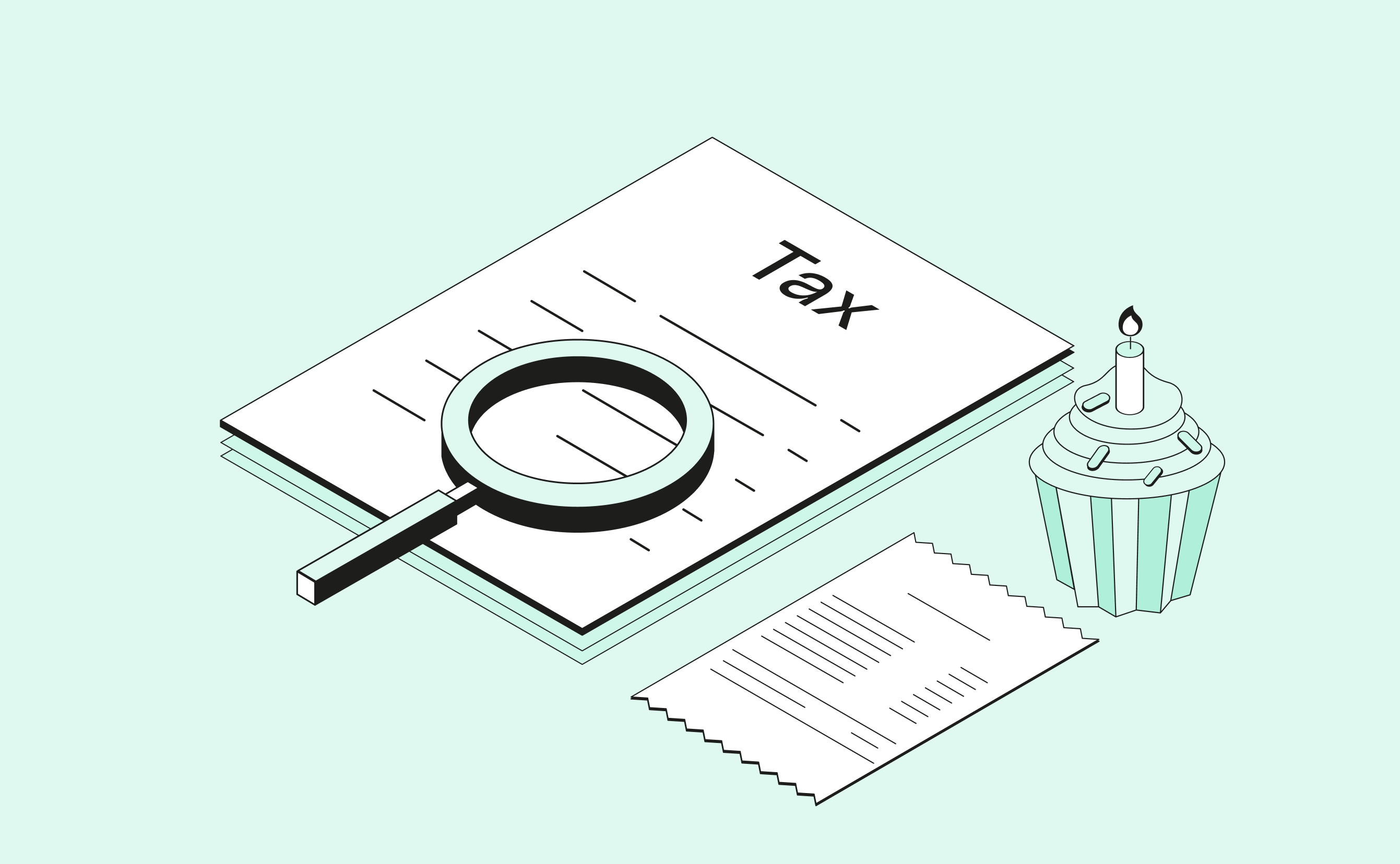Becoming an entrepreneur is an exciting adventure. Dealing with bureaucracy, not so much. To help you in your business creation journey, we’ve created a list of all the legal statuses to choose from for your new freelance business, outlining their respective pros and cons.
Choosing the right legal status when starting a freelance business

Freelance isn’t a legal status, nor is it a business structure, technically. This term first appeared in the novel Ivanhoe by Walter Scott ("I offered Richard the service of my Free Lances”). He refers to the age of medieval mercenaries whose alliance went to the highest bidder. Today, the word refers to an independent contractor.
The micro-enterprise: a fast and easy setup to get you started straightaway
Key points:
Simplified regime, costs nothing to start your business
Easy to launch and manage your business
Income tax
Good option for testing out your business idea with little fuss
The micro-enterprise is a simplified regime for the individual enterprise legal status. Becoming an independent contractor this way is free and easy: simply fill out a form and attach a copy of your ID.
Not to mention:
- Your accounting and tax obligations are far less demanding than any of the other regimes or legal statuses. You just need to maintain a ledger that shows your incoming payments and expenses and declare your revenue on a monthly or quarterly basis.
- There is no corporate tax on micro-enterprises. You have to pay income tax and fill out your usual yearly individual tax return.
- The social charges rate is capped at 22% for commercial and artisanal services rendered or liberal professions that pay into the general social security regime and 22.2% for liberal professionals that pay into the liberal retirement fund (CIPAV).
On the other hand, the limits of the micro-enterprise are:
- The comingling of personal and professional assets. If ever your business hits a rough patch, you are personally responsible for any debt, which could affect your personal estate.
- Revenue for micro-enterprises is capped: if you go over €77,700/ year (for services or liberal activity) or €188,700/year (for commercial activity), two years in a row, you need to change regimes.
- Micro-enterprises are not allowed to make itemized deductions.
It’s the perfect no-cost, low-stress regime for testing out a new solo business idea. But due to the limitations we mentioned above, it’s often used as a “stepping stone” regime for freelancers.
The individual enterprise (IE): the legal status for easy admin
Key points:
Free to create your company (if you’re a freelance member of a regulated liberal profession)
Easy administrative and accounting management
Income tax
A good choice if you don’t want to start a sole-proprietorship company.
If you’re looking to do business in your own name and your business activity requires little overhead - like most freelancers - then it makes the most sense to create a micro-enterprise. That said, the individual enterprise (IE) (entreprise individuelle or EI) can be an attractive option if you have lots of professional costs you want to deduct from your revenue (you can also be reimbursed for the VAT you paid on expenses).
The advantages of being an individual enterprise are similar to those of the micro-enterprise, even though the accounting requirements are more demanding. You don’t need to hire an accountant to handle your admin, there is no share capital to deposit, nor do you need to draft statutes.
However:
- Just as with a micro-enterprise, your personal assets are conflated with those of your business, unless you’ve submitted a declaration of nonseizability.
- Social charges are higher than those of a micro-enterprise and apply to your entire business revenue (not just your income). You can always deduct professional expenses from your revenue to bring this number down.
The individual enterprise could be the right option for you if you would prefer to do business in your own name rather than operate as a legal entity and if you have high costs related to your profession.
The EURL: the status best suited to receiving a monthly salary
Key points:
Limited liability for the entrepreneur
A good balance between social coverage and social charges
Income tax by default, with the option to opt into corporate tax
A good option if you want to pay yourself a monthly salary
A sole-proprietor Limited Liability Company (société à responsabilité limitée or SARL) is a common legal status for many enterprises. The Limited Liability Sole Proprietor Enterprise (entreprise unipersonnelle à responsabilité limitée or EURL) is a SARL with only one associate. Usually, this sole associate of the EURL designates themselves as the director of the company. We call them the “directing sole associate of EURL” (gérant(e) associé(e) unique d’EURL).
As opposed to the individual enterprise and micro-enterprise, the EURL is a legal entity, a company. This entails the drafting of statutes and the deposit of share capital (you’re free to set this amount, starting from €1).
In a EURL, the entrepreneur’s liability is limited to the amount they contribute to the company, which protects their personal assets. This legal status offers a good compromise between social protections and the corresponding social charges rate:
- Social charges apply to the salary you pay yourself. This comes out to about 45%.
- Your payments go to the independents’ social protection regime, which is why your contributions are higher than those of an individual enterprise. You can always opt into complementary insurance to benefit from better coverage.
The EURL is a legal status that could make sense for your freelance business if you intend to pay yourself a high monthly salary rather than in dividends. This is the main difference between the EURL and the SASU (article in French).
The SASU: the status that allows you to pay yourself in dividends
Key points:
Limited liability for the entrepreneur
The same social protections as those of salaried workers
Corporate tax, with the option to be taxed as the sole associate
A good option if you intend to use your dividends
The Simplified Single Shareholder Company (Société par Actions Simplifiée Unipersonnelle or SASU) is to the Simplified Shareholder Company (Société par Actions Simplifiée or SAS)(article in French) as the EURL is to the SARL: it’s the same legal status but with one sole associate.
Creating a SASU (page in French) is another option for those looking to do business as a freelancer. As with the EURL, the entrepreneur’s liability is limited to their contribution to the company. Also, the share capital amount can be freely set, starting from €1, and professional costs can be deducted from the company revenue.
As a sole associate in your SASU, your social coverage is that of a salaried worker. It’s the only legal status that allows you to opt into the general Social Security regime, with one key distinction: it does not give you unemployment insurance.
On the other hand, your social charges rate is quite high: on average it can come out to 75% of the pay you set aside for yourself.
The SASU and EURL legal statuses that allow you to scale up. If your business grows and you bring on another associate, you can upgrade to the SAS and SARL statuses, respectively.
Umbrella companies: the legal status that offers a secure way do business
Key points:
Low-risk
Salaried worker status
Income tax
A good option if you want to have the advantages of salaried work as a freelancer.
We end this list with one of the lesser-known legal statuses available for freelance businesses: wage portage with umbrella companies. You get to be an entrepreneur while also being the salaried employee of an umbrella company. In concrete terms, you haven’t created a business - you’re “employed” by the umbrella company.
This option could prove interesting if you’re looking for a little-to-no-risk way to start your business. Know that in exchange for handling your admin and paying you a salary (from the invoices you pass onto them to process), the umbrella company takes a commission from your billings. This can vary anywhere from 5 to 15% of the invoiced amount.
The “return to the workforce” benefits (allocations d’Aide de Retour à l’Emploi or ARE), or unemployment insurance are compatible with certain legal statuses, notably the micro-enterprise and SASU. You can find out more at your local Pôle Emploi, as it can inform your strategy for launching your business.
There are also some government aid programs that can work to your advantage, like the aid for buying or creating a company (aide à la reprise et à la création d’entreprise or ARCE, and other types of help).
Which is the best legal status for your freelance company? The answer completely depends on your business priorities and life situation. But as a general rule of thumb, the micro-enterprise is a great way to get started as a freelancer. It allows you to test your business project and the revenue threshold gives you ample space to figure out what’s important (social charges, flexibility to change status, etc.). It could be wise to ask the advice of a CPA for a more personalized overview - and some firms even offer a free consultation.
Whatever the legal status you choose, Qonto is here to help you create your company, 100% online.






